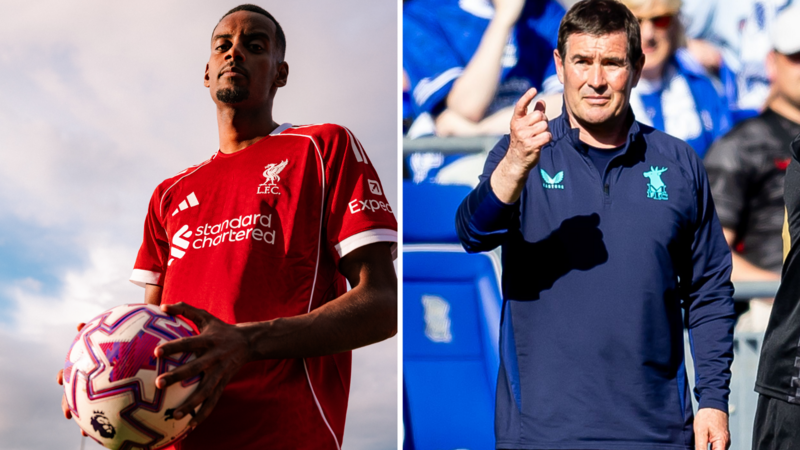Clough Stunned by Premier League's £3bn Spending Compared to £10m




The world of football, as glamorous and exhilarating as it is, often comes with its fair share of controversies and hotly debated topics. One such recent contention comes from former England striker, Nigel Clough, who has firmly expressed his concern about the staggering amounts of money circulating in the Premier League's transfer market. Clough argues that such spending is not only "incomprehensible" but might also have a far-reaching impact on the core supporters of the game: the fans.
Every transfer window seems to set anew the benchmark for spending, as clubs across England's top flight send shockwaves through the sport’s financial landscape. The summer transfer window particularly, often sees mind-boggling sums of money exchanged in return for player services. It’s a trend that looks to be escalating rather than stabilizing, with recent windows surpassing previous records for total expenditure.
Nigel Clough, who has considerable pedigree in the game, not only as a former player for England but also as a seasoned manager, voices a concern that many insiders whisper but few openly discuss. The rising costs, as Clough explains, may not solely affect the club's coffers but could potentially have a more detrimental impact on fan experience and accessibility. The essence of Clough’s worry is that as clubs spend more on acquiring talents, the average fan could find it increasingly difficult to afford match-going experiences, what with rising ticket prices and associated match-day costs.
The financial prowess of the Premier League is undisputed globally, giving English clubs a significant edge in attracting world-class talents. However, this prowess comes with increased expectations for revenue generation, part of which inevitably falls on the fans in the form of higher ticket prices and expensive merchandising. Clough’s concern taps into a broader debate about whether football remains the working-class sport it once was, or if it has drifted into a spectacle tailored for the more affluent.
The implications of these high transfer spends are layered. On one level, the splash of cash enhances the quality of the league and its global competitiveness. For fans, it means watching top-tier talents each week, a prospect that can genuinely enrich the fan experience. However, the flip side is the potential alienation of a traditional fan base, those for whom attending matches is passed down through generations.
Moreover, with the UEFA Financial Fair Play regulations intended to ensure clubs spend within their means, English clubs also navigate a complex regulatory landscape that balances financial health with competitive spending. Clough’s critique perhaps also subtly highlights concerns regarding the sustainability of such financial practices in the long run.
As this debate unfolds, it’s not only about balancing books but also about balancing a game’s heritage with its modern-day evolution. The Premier League, as a beacon of high-quality football, certainly benefits from the investments pumped into it, but it must tread carefully to not lose sight of its most loyal stakeholders – the fans.
Indeed, football authorities, clubs, and regulatory bodies need to ponder on sustainable models where financial muscle does not overshadow fan accessibility and inclusion. Innovations in club ownership, fan engagement, ticket pricing, and broader financial reforms might offer some solutions to ensure that the game remains as celebrated in the stands as it is on the field.
As football continues to evolve both on and off the pitch, the insights from seasoned professionals like Nigel Clough are invaluable in reminding us of the intrinsic values that made the sport a global phenomenon. Balancing commercial success with cultural and community integrity is the challenge that lies ahead for football, especially in leagues as influential as the Premier League. It’s a discussion worth having and one that could define the future of the sport. As the world of football scrutinizes its path forward, ensuring that the game remains accessible and enjoyable for fans will undoubtedly be pivotal in its sustained success.